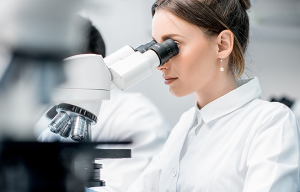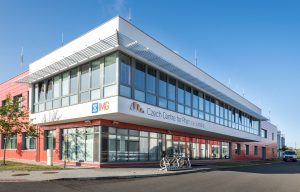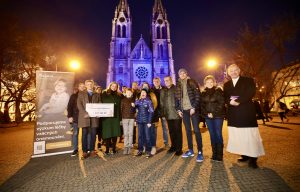News
Currently open positions at the Czech Centre for Phenogenomics
PROJECT MANAGER – PROJECT ADMINISTRATION TEAM LEADER PROJECT MANAGER POSTDOC/JUNIOR RESEARCHER FOCUSED ON ANGELMAN SYNDROME RESEARCH AND THERAPY DEVELOPMENT POSTDOC/JUNIOR RESEARCHER FOCUSED PRADER-WILLI SYNDROME RESEARCH AND THERAPY DEVELOPMENT POSTDOC/JUNIOR RESEARCHER FOCUSED NOVEL SPATA5 SYNDROME RESEARCH AND THERAPY DEVELOPMENT HEAD/DEPUTY HEAD OF TRANSGENIC AND ARCHIVING MODULE POSTDOC/JUNIOR RESEARCHER FOCUSED ON RARE DISEASE MODEL DEVELOPMENT JUNIOR RESEARCHER… Read more
Keynote and invited speakers of the 6th CCP Phenogenomics Conference announced
We are delighted to announce the keynote and invited speakers of the 6th CCP Phenogenomics Conference 2024: Keynote speakers: Invited speakers: Read more
Science Fair 2024 has started today and CCP is there
Organised annually by the Czech Academy of Sciences since 2015, the Science Fair is one of the largest popular educational events in the Czech Republic. Over an exhibition area of over 8,000m², visitors can view over 100 exhibitions from more than 90 exhibitors. Among the exhibitors you find scientific institutions and educational, innovative and technological… Read more
LAST CHANCE to apply for free cancer services via canSERV project!
The Czech Centre for Phenogenomics is among the esteemed service providers for the pan-European cancer project – canSERV. Along with other INFRAFRONTIER partners, our cutting-edge cancer services are among the following offered via the project: More information about these services can be found HERE. Apply now to get FREE-OF-CHARGE access to any of these services following this link:… Read more
canSERV Call for Service Provision on “Reaching an Understanding of Cancer”
The canSERV Consortium is pleased to announce the launch of its 2nd Challenge-Driven Call on “Reaching an Understanding of Cancer”. Cancer Researchers world-wide are invited to apply for free access to cutting-edge transnational services with an indicative overall budget for this call of EUR 750.000. The primary objective of this call is to accelerate research… Read more
Upgrade of the large research infrastructure CCP III
The goal of the project (ID: CZ.02.01.01/00/23_015/0008189) is to modernize the large research infrastructure of the Czech Center for Phenogenomics with the aim of maintaining its competitiveness and expanding the portfolio of services. The project comprises of three key activities (KA): KA1 – Project management KA2 – Modernization and upgrade of large research infrastructure KA3… Read more
CCP succeeded in the EIC Transition call
Czech Centre for Phenogenomics (Institute of Molecular Genetics of the Czech Academy of Sciences), which is a partner in the project TREM2MEDS – Towards the clinical implementation of TREM2 microglia engineering for treating dementia, succeeded as the only applicant from the Czech Republic in the EIC Transitions call. TREM2MEDS (coordinator: Universita degli Studi di Padova, Italy)… Read more
Apply for CCP services: Generation of precision cancer mouse models using CRISPR-Cas9 and In-depth cancer-based phenotyping of cancer mouse models
Open Call for Transnational Service Provision under the canSERV Open Call The researchers are welcome to apply to a portfolio of services offered by canSERV to address the research needs of the entire oncology developmental pipeline. CCP offers following services in this call: For more information visit canSERV website. Submission Deadline: 21 May 2024, 2pm… Read more
Updated acknowledgement of CCP in research outputs
The Czech Centre for Phenogenomics receives funding from public providers, which allows CCP to offer state-of-the-art services and technologies to its users. Therefore, all the work performed at CCP should be acknowledged by users in their outputs (publications, presentations etc.). This acknowledgement provides an evidence of the impact of CCP on quality of research and… Read more
ASGENT continues supporting CCP research on Angelman syndrome in 2024
On the occasion of the International Angelman Syndrome Day, Radislav Sedlacek, director of the Czech Centre fo Phenogenomics, received yesterday a cheque in the amount of CZK 1 million for the continuation of Angelman syndrome research using mouse models from the Association of Gene Therapy (ASGENT), which has long supported this research.At the same time,… Read more








